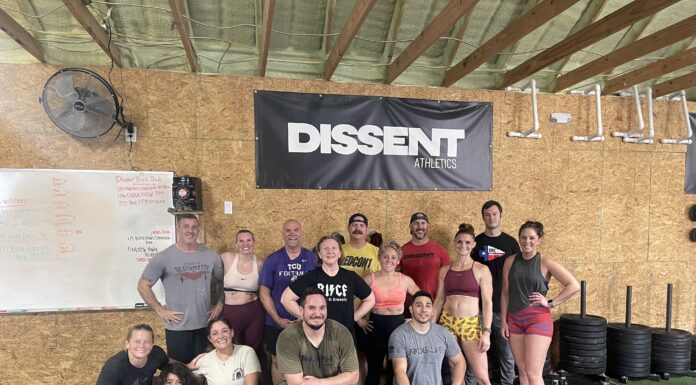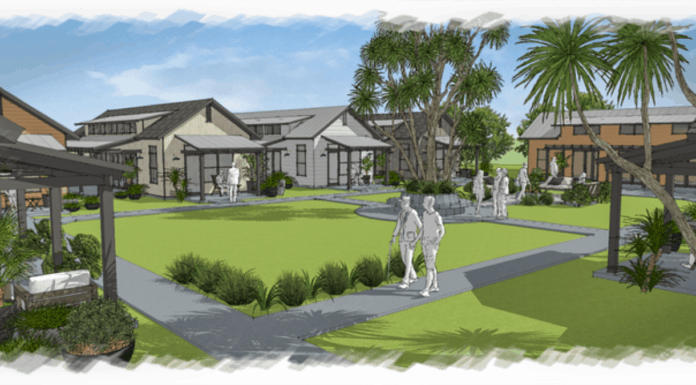Election Day November 3, 2015
In 2015, the 84th Texas Legislature passed seven joint resolutions proposing amendments to the state constitution, and these proposed amendments will be offered for approval by the voters of Texas on the November 3, 2015, election ballot. {{more}}
The amendments include issues involving homestead exemptions, residency requirement of state officials, charitable raffles and reinforcing the rights of Texans to hunt and fish.
According to the Star
Telegram in the Sunday edition, 5.55% of eligible Texas voters have already voted my mail or in person in early voting. While that does not sound like a lot, it is if you consider past similar elections when 3.7% or less is the rule. The exception being, the election 2005 when 5.21 % voted early when same-sex marriage was on the ballot.
The Texas constitution is among the longest of state constitutions in the United States. Since its adoption in 1876, the legislature has proposed 666 constitutional amendments, and 662 have gone before Texas voters; 483 have been approved by the electorate and 179 have been defeated.
The following is a list of the pros and cons on each of the proposed amendments. Remember, when voting you do not have to vote on each proposition. You may vote for all or pick and choose.Do I Vote? (click to see Tarrant County Interactive map)
ID Options (Click to see voter basics)
Following each are recommendations from 3 different sources: StarTelegram
, DallasMorning
News and ProgressTexas
. Click on each of the previous sources to see specifics.
Proposition 1 ?The constitutional amendment increasing the amount of the residence homestead exemption from ad valorem taxation for public school purposes from $15,000 to $25,000, providing for a reduction of the limitation on the total amount of ad valorem taxes that may be imposed for those purposes on the homestead of an elderly or disabled person to reflect the increased exemption amount, authorizing the legislature to prohibit a political subdivision that has adopted an optional residence homestead exemption from ad valorem taxation from reducing the amount of or repealing the exemption, and prohibiting the enactment of a law that imposes a transfer tax on a transaction that conveys fee simple title to real property.?
Pros: Property taxes are considered among the most onerous taxes. Housing affordability is a growing concern in the state. Areas with rapid growth with a strong demand for housing may see increasing numbers of homeowners, especially those with fixed incomes, being priced out of their neighborhood. The school district residence homestead exemption has not been updated since 1997. Appraisals have continued to increase. Property taxes continue to rise. Texas real estate taxes are the 5th highest in the country. This proposition provides much-needed tax relief, beginning in 2015. Even if the exemption increase does not reduce the property tax burden due to increased appraisals, it will slow the growth of taxes. The proposition would also prevent a transfer tax on real estate transactions.
Cons: Detractors say that this will provide only nominal tax relief, of an average of $126 a year. Increases in local taxes and appraisals could nullify the tax cut. This provides no benefit to renters. Increasing the exemption will cost the state $1.24 billion every two years to make up the loss for school districts. Detractors say that the state should cut consumption taxes and increase spending on education and infrastructure in order to stimulate the economy.Star-Telegram Yes, Dallas Morning News Yes, Progress Texas Neutral……………………
Proposition 2 … The constitutional amendment authorizing the legislature to provide for an exemption from ad valorem taxation of all or part of the market value of the residence homestead of the surviving spouse of a 100 percent or totally disabled veteran who died before the law authorizing a Prior residence homestead exemption for such a veteran took effect.
Pros: Current law unintentionally and inequitably creates two classes of surviving spouses of 100 percent or totally disabled veterans: the surviving spouse of a 100 percent or totally disabled veteran who died on or after January 1, 2010, is eligible to receive an ad valorem tax exemption if that spouse meets certain qualifications, while the surviving spouse of a 100 percent or totally disabled veteran who died before January 1, 2010, is not eligible to receive that exemption. The proposed amendment corrects that problem and recognizes that the sacrifice made by a 100 percent or totally disabled veteran and the person’s surviving spouse is the same regardless of the date on which the disabled veteran died. In addition, the fiscal effect of the proposed amendment and the enabling legislation on taxing units would be minimal, while the benefit to the family of any individual disabled veteran who died before 2010 would be considerable.
Cons: Opponents believe that by enlarging the number of surviving spouses of 100 percent or totally disabled veterans eligible to receive an exemption from ad valorem taxation of the surviving spouse’s residence homestead, the proposed amendment would decrease tax revenue available to school districts, municipalities, counties, and other taxing units to provide essential services and would impose a burden on the 19 state to the extent the state makes up the revenue loss to school districts. Additionally, because military families tend to reside in proximity to military bases and facilities in this state, property tax exemptions for disabled veterans and their families disproportionately affect certain areas of the state and have a greater effect on the ability of taxing units in those areas to raise sufficient revenue to provide essential services as well as on the distribution of the tax burden in those areas.Star Telegram Yes, Dallas Morning News Yes, Progress Texas Yes………………..
Proposition 3 … The constitutional amendment repealing the requirement that state officers elected by voters statewide reside in the state capital.
Pros: The proposed amendment would allow certain state officers elected by the voters statewide to maintain a residency at a location in this state other than Austin, the state capital, and reduce the burden the state capital residency requirement places on the officers and their families. The capital residency requirement was included in the 1876 Texas Constitution when state officers traveled to the state capital by horse and buggy and has not been amended since. Advances in transportation, communication, and technology have rendered the residency requirement obsolete and have provided the possibility of performing official duties from other locations. In addition, state officers’ duties extend to locations other than the state capital, and performance of those duties may require the officers to spend a majority of their time away from Austin. Any state officer who, as a result of the lack of a state capital residency requirement, fails to spend sufficient time at the state capital is accountable to the voters at the next election. Further, the residency requirement creates for statewide offices an elite class of candidates who live in or can afford to move to Austin. Finally, a majority of the other states in the United States do not require their state officers to reside at the seat of government.
Cons: The proposed amendment would repeal a residency requirement that has remained unchanged in the Texas Constitution since its adoption in 1876. Opponents say that the amendment would allow state officers to be physically present at the state capital infrequently and to possibly neglect their duties of office. State officers are often required to conduct statewide business at the seat of overnment, and residency in a location other than Austin would likely increase the state-reimbursed travel expenses of the officers. Finally, a state officer, by maintaining a residence away from the state capital, may be able to select a residence based on the officer’s perception that the location would provide a more favorable venue than Travis County for any legal action brought against the officer.Star Telegram No, Dallas Morning News, Yes, Progress Texas No………………………….
Proposition 4 … The constitutional amendment authorizing the legislature to permit professional sports team charitable foundations to conduct charitable raffles.
Pros: The amendment would allow professional sports team charitable foundations in this state to highlight the team’s 29 philanthropic activities, bring awareness to community needs, encourage sports fans to contribute to worthy causes, and raise additional money for the foundation’s charitable purposes. Under current law, nonprofit organizations may annually conduct not more than two charitable raffles. The proposed amendment merely increases the number of raffles the affected charitable foundations may conduct and authorizes cash payments. Several other states that are home to professional sports teams authorize the teams to conduct similar charitable raffles.
Cons: There was no opposing testimony on either floor or in any committee on this resolution. Gambling opponents, while not necessarily opposed to charitable raffles, are concerned that the passage of H.J.R. 73 will expand gambling in this state and encourage future expansions of gambling in this state through the use of electronic displays to conduct the raffles that could potentially lead to electronic raffles at the sports venues and to other electronic gambling at bingo establishments or horse or greyhound racetracks.Star Telegram Yes, Dallas Morning News Yes, Progress Texas Yes……………………
Proposition 5 … The constitutional amendment to authorize counties with a population of 7,500 or less to perform private road construction and maintenance.
Pros: Rural counties in Texas have grown in population in the last 35 years, and the constitution should be updated to reflect population growth in that time. The proposed amendment would give rural counties and private landowners in those counties more flexibility to update private roads that are poorly maintained. Many rural counties rarely have private contractors available to do the work. Poorly maintained roads create public safety hazards for citizens and emergency services. Private landowners still would have the flexibility to hire a private company instead of the county if they chose to do so. The proposed amendment would include approximately 20 additional counties with populations between 5,000 and 7,500. Some of the additional counties were under the 5,000-person threshold at the time the constitutional provision was passed in 1980 or at some time since 1980, including some counties that exceeded the 5,000-person threshold only after a prison was constructed in the county. The population limitation is necessary to prevent populous counties from competing with the private road construction industry. However, in the rural counties that would be covered by the proposed amendment, there are no private industries with which to compete, and counties should be allowed to deal with minor projects to maintain road safety. It would not be profitable for private companies to travel to rural counties for minor projects.
Cons: Detractors say that instead of increasing the maximum population threshold for counties allowed to perform private road work under Section 52f, Article III of the state constitution, the population limit should be eliminated. All counties in the state should have the option to construct and maintain private roads in the county as long as private landowners agree and pay the county for the cost of the work.Star Telegram Yes, Dallas Morning News Yes, Progress Texas Yes……………………
Proposition 6 … The constitutional amendment recognizing the right of the people to hunt, fish, and harvest wildlife subject to laws that promote wildlife conservation.
Pros: Supporters of the amendment feel that animal rights groups and anti-hunting activists may try to impose stricter limits on hunting and fishing in this state, and supporters therefore seek constitutional protection for those activities as a preventive measure to preserve the opportunity to hunt and fish for future generations. Supporters point out that protecting hunting and fishing would also protect the economic benefit enjoyed by the state from revenue generated by those activities because the surrounding industry contributes to employment, investment, and tax revenue. Additionally, ndustry related to hunting and fishing results in increased funding for conservation efforts and provides an incentive to landowners to maintain the local habitat, including open spaces, for game and non game animals. By specifically including traditional methods of hunting, fishing, and harvesting wildlife, and stating that hunting and fishing are preferred methods of managing and controlling wildlife, the proposed amendment does not prohibit the use of other methods and would still allow the prohibition of methods that are not sporting or that could endanger wildlife populations.
Cons: Opponents of the amendment feel that the amendment is unnecessary because there is no threat to hunting and fishing in this state. Efforts to enact the amendment as a preventive measure may in fact spur groups opposed to hunting and fishing to begin activity in response. A constitutionally stated preference for the use of hunting and fishing to control and manage wildlife may force regulations to change in a way that would make it more difficult to achieve a balanced ecosystem. While other methods of control might be more appropriate in certain situations, those methods might have to give way to the constitutional preference. The amendment causes confusion between a person’s protected right to hunt, fish, and harvest wildlife and the role of the state and federal government in enacting laws that regulate those activities. The line between regulation and right is unclear.Star Telegram Yes, Dallas Morning News Yes, Progress Texas “shrug”…………………….
Proposition 7 … The constitutional amendment dedicating certain sales and use tax revenue and motor vehicle sales, use, and rental tax revenue to the state highway fund to provide funding for nontolled roads and the reduction of certain transportation-related debt.
Pros: The proposed amendment would provide a consistent and reliable source of funding for transportation projects in the state. This state’s current transportation system is inefficient and in poor repair in many areas, which has a negative effect on the state’s economy. The current method of funding transportation projects in this state is partially to blame for the state of the transportation system. Large transportation projects can take many years to complete and may include unforeseen costs, making it impractical to disburse the entire cost of a project at one time. The current practice of funding such projects using biennial appropriations, however, can lead to delays when an expected appropriation is not received or has to be spent for debt service. The state needs a predictable, dedicated revenue source that allows for future planning to address the state’s infrastructure demands. The proposed amendment would provide that source of funding so that existing projects can be completed and new projects can be planned up to 10 years in advance and started in areas that will lead to the greatest return on the state’s monetary investment. Although the dedication of state tax revenue to the state highway fund does reduce the amount of revenue that would otherwise be available for general state purposes, the proposed amendment contains mechanisms by which the dedicated revenue would be available for those general purposes if needed.
Star Telegram Yes, Dallas Morning News Yes, Progress Texas No……………………
TEXAS REQUIRES VOTERS TO SHOW PHOTO ID …
Texas now requires voters to show an acceptable photo ID at
the polls. The only acceptable photo IDs are:
Texas Department of Public Safety (DPS) issued photo IDs
? Driver license
? Personal identification card
? Concealed handgun license
? Election Identification Certificate
United States government issued photo IDs
? Passport
? Military identification card
? Citizenship certificate or naturalization certificate with
photograph
Only the above photo IDs can be accepted at the polls.
Other photo IDs including student IDs, employer IDs and
out-of-state driver licenses cannot be accepted.





































